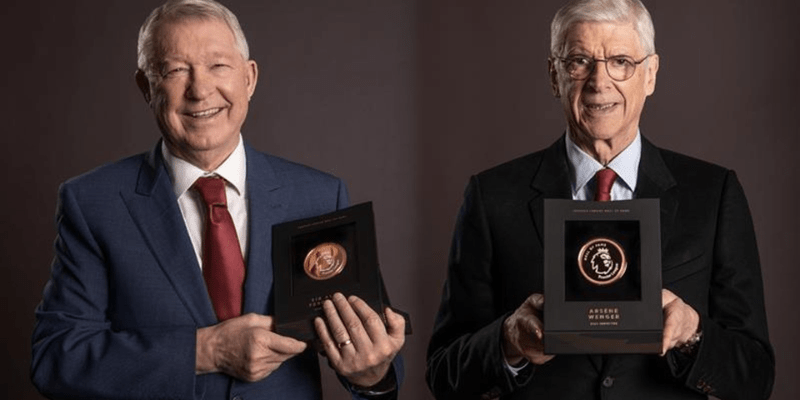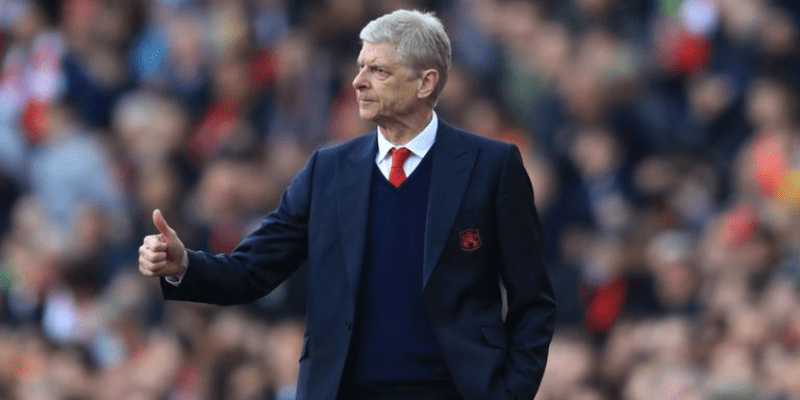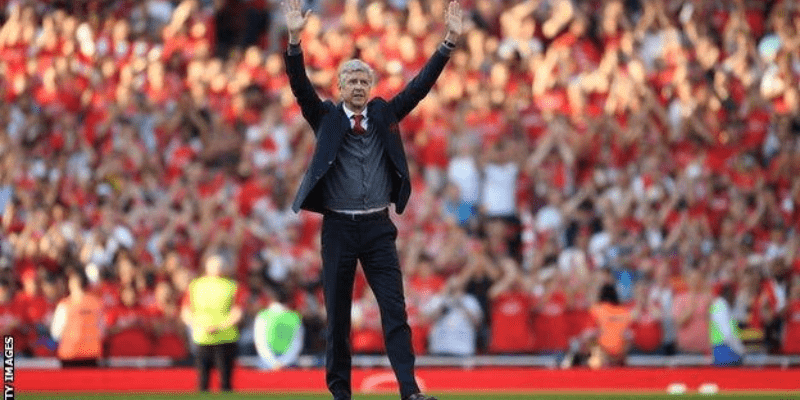Arsenal’s history is rich with iconic managers. But among all of them, Arsène Wenger stands out as the undisputed most successful Arsenal manager — a title earned through trophies, impact, longevity, and transformation. In this article, VulcanKick will take you on a deep dive: what makes Wenger the greatest in Arsenal lore, how he compares to past legends like Herbert Chapman and George Graham, and why “success” at the Arsenal means more than just silverware.
What do we mean by success?

Before crowning someone the most successful Arsenal manager, we should define what “success” entails at a club like Arsenal. A manager’s legacy typically includes:
- Trophies won (league titles, FA Cups, community shields, etc.)
- Longevity and consistency
- Reputation and lasting legacy (innovation, impact beyond just wins)
- Milestones and records (unique achievements that distinguish them)
When we measure those metrics at Arsenal, Arsène Wenger eclipses all others.
Arsène Wenger: Arsenal’s record-breaking icon
A trophy haul like no other at Arsenal
During his 22-year stay (1996–2018), Wenger won three Premier League titles, seven FA Cups, and multiple FA Community Shields. He also orchestrated one of the greatest seasons in English football history — the Invincibles of 2003–04, when Arsenal went through the entire league campaign unbeaten.
Wenger’s trophy count at Arsenal is higher than any other manager in the club’s history.
Records and consistency
- Wenger managed 1,235 matches in charge of Arsenal — far more than any predecessor.
- His average win rate at the club hovered around 57 %, combining high performance with long-term consistency.
- In the Premier League era, he holds the record for most matches managed (828) and is the only manager to deliver a full unbeaten league season. r League])
Beyond silverware: transformation and influence
Wenger is as much remembered for how he changed Arsenal as for what he won. He introduced modern training methods, nutrition programs, global scouting, and a commitment to youth development. He moved Arsenal from Highbury to Emirates — and oversaw that transition while keeping competitive. His influence reached across English football, raising the bar for professionalism and style.
Legends before Wenger: Chapman, Graham, and others

While Wenger dominates on many metrics, earlier managers left foundational legacies worth remembering.
Herbert Chapman — the visionary architect
Chapman took over in 1925 and delivered Arsenal’s first major trophies: the FA Cup in 1930 and First Division titles in 1931 and 1933.
His innovations — tactics (the WM formation), fitness regimes, numbered shirts, and floodlights — helped redefine how football was played and managed. Many see him not purely as the most successful, in terms of volume, but as the most transformational Arsenal figure in history.
However, Chapman’s reign was relatively short (403 matches) and he died in office, limiting the volume of his achievements.
George Graham — defensive mastery
Graham, in the 1980s and early ’90s, brought stability, two league titles, and a reputation for discipline and defensive strength. He is often ranked among Arsenal’s greatest managers for bringing trophies and culture.
But his total haul and duration can’t challenge Wenger’s numbers.
Bertie Mee, Terry Neill, and others
Other managers like Bertie Mee (FA Cup, Inter-Cities Fairs Cup) and Terry Neill (Cup finals) hold special places in fan memory, especially for underdog achievements. But in sheer scale and breadth, Wenger remains ahead.
Head-to-head: Wenger vs his rivals
Let’s break down how Wenger outpaces the rest in key dimensions:
| Metric | Arsène Wenger | Herbert Chapman | George Graham / Others |
| Major trophies | 3 Premier Leagues + 7 FA Cups (plus others) | 2 First Division + 1 FA Cup | 2 league titles + cups etc. |
| Matches managed | 1,235 matches at Arsenal | ~403 matches at Arsenal | Varies (hundreds) |
| Win % / consistency | ~57 % over a long span | Solid for era, but smaller sample | Good in shorter tenures |
| Unique achievements | Invincibles season, longest-serving, modernizing arsenal | Tactical and structural innovation, early trophies | Club re-building, niche successes |
| Legacy & influence | Global impact on English football, youth, training standards | Pioneer of modern management | Tactical discipline, club identity |
When considering all these factors together, Wenger’s blend of volume + longevity + transformation gives him a clear edge.
Why some might challenge the verdict

It’s important to appreciate that not every debate centers on raw numbers — and some fans might argue:
- Chapman’s foundational role: Without Chapman, Arsenal might never have become a force in the first place. His work set the foundation on which Wenger and successors built.
- Era differences: The modern game is more competitive, with greater resources, media pressure, and global scouting — making direct comparisons tricky.
- Subjectivity of “success”: Some value peak performance or innovation over consistency. If someone prioritizes innovation over sheer quantity, Chapman or certain niche managers may appeal more.
Still, for many Arsenal fans and historians, success means both trophies and enduring influence — and Wenger delivers on both.
Lessons from Wenger’s reign for future managers
Wenger’s record offers a blueprint for ambitious coaches:
- Patience and long-term vision — success may take time, but sustained growth pays off.
- Innovation matters — adopting new methods in training, scouting, diet can give a competitive edge.
- Blending youth and experience — Wenger was never afraid to introduce young talents while keeping senior pros.
- Balancing transitions — moving stadiums, dealing with financial constraints — how a manager handles adversity defines legacy.
Mikel Arteta, whose win percentage has been impressive, is building his project and may yet approach Wenger’s level in the long run. But the bar Wenger set is monumental.
Final Thoughts
Arsène Wenger is firmly the most successful Arsenal manager, not just by tallying trophies, but by transforming the club’s identity, raising the bar, and staying consistent across two decades. His Invincibles season, his longevity, and his deep impact on football culture make his reign legendary.
If you enjoyed this breakdown or want more on Arsenal’s managers, data-packed club stats,profiles of football legends, VulcanKick invites you to explore further. Which Arsenal figure should we analyze next?






